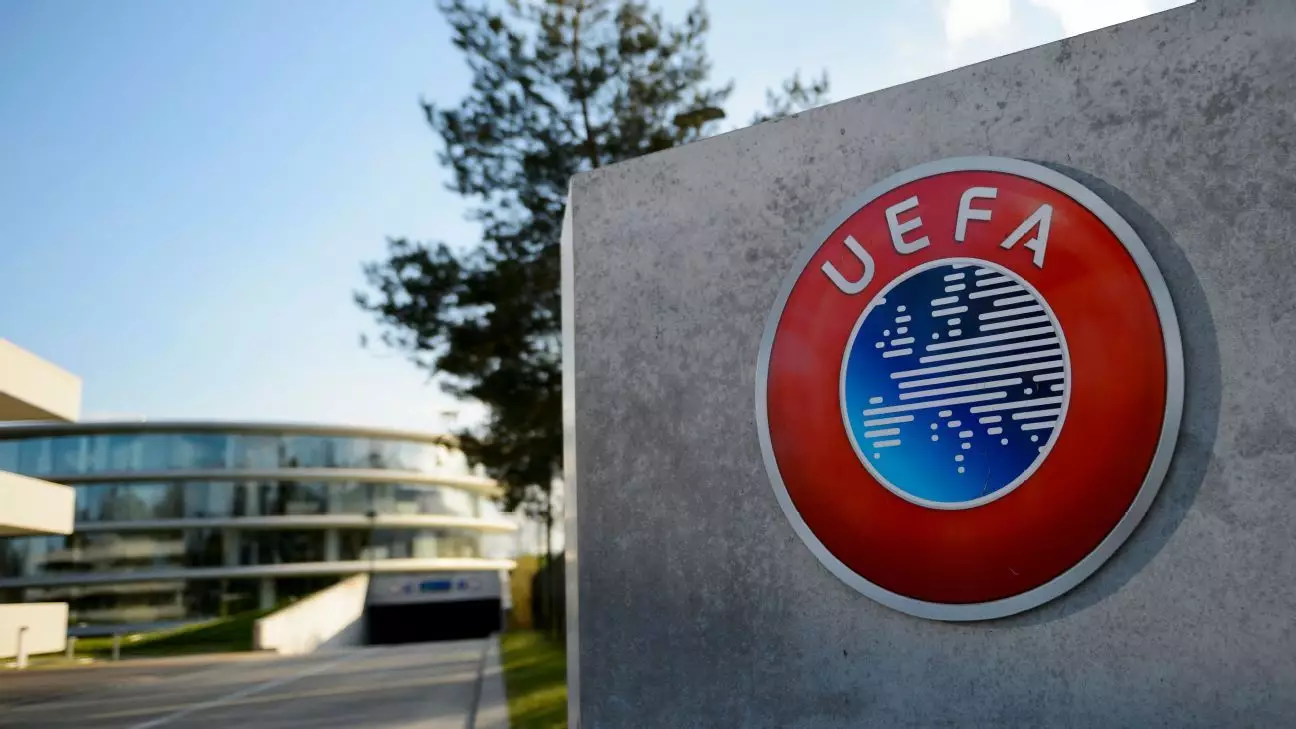Recent disciplinary actions by UEFA reveal a systemic shift toward stringent financial regulation, exposing the myth that football clubs can operate without accountability to their long-term fiscal health. The record €31 million fine levied against Chelsea underscores the league’s increasing intolerance for financial mismanagement, particularly regarding clubs’ spending versus their revenue. This penalty is not merely a punitive gesture but a clear message: sustainability is non-negotiable in today’s heavy-handed financial environment.
Historically, clubs like Chelsea and Barcelona demonstrated that financial growth often came at the expense of stability, fueled by large investments and speculative spending. However, UEFA’s refreshed approach signifies a pivotal change—instituting strict thresholds and penalties intended to discourage reckless expenditure. The compound fines for failing to meet break-even targets and exceeding squad cost limits reflect a desire to foster a more sustainable model for European football, one less susceptible to the risks of financial collapse or debt spirals.
The dramatic escalation of fines, especially Chelsea’s €20 million punishment—the maximum that mirrors UEFA’s historic sanctions on clubs like Manchester City and PSG—further emphasizes the increased seriousness of these violations. This is no longer about petty infractions; UEFA is confronting the financial excesses that threaten the integrity of the sport itself. The league’s move to enforce these rules aggressively suggests a confidence that tighter regulation will promote long-term stability over short-term success.
Ownership Changes and the Race for Financial Compliance
Chelsea’s recent ownership under Todd Boehly and Clearlake Capital offers a compelling backdrop to this financial saga. Since their takeover in 2022, the club has been characterized by lavish spending, rapidly shifting away from Roman Abramovich’s more controversial, yet stable, financial practices. Yet, the new ownership’s aggressive transfer strategies have landed the club in hot water, illustrating a cautionary tale about the perils of turning commercial ambition into unchecked spending.
The investigation into the club’s €76.5 million sale of hotel assets, via subsidiaries, signals UEFA’s broader scrutiny of non-sporting financial maneuvers, which can often be used to obscure the true financial position of a club. Chelsea’s case exemplifies how clubs are now held accountable not only for players’ wages and transfer costs but also for their broader financial dealings, including asset sales and complex corporate structures.
Simultaneously, Barcelona’s predicament—fined €15 million for excessive losses—illustrates a similar theme: even football giants are vulnerable to UEFA’s standards. Despite their rich history and global fanbase, clubs that fail to maintain financial discipline risk sanctions that can hinder their progress in European competitions. This regulatory climate compels clubs to rethink their fiscal strategies, transforming them from mere profit-driven entities into models of financial discipline.
The Broader Implications for Future European Football
UEFA’s penalties are more than isolated incidents; they reflect an evolving landscape where financial health is as crucial as on-field performance. Clubs banking on lucrative entry into the Champions League or other competitions will need to adapt or face severe consequences, including future fines and restrictions on participation.
This shift prompts a debate about the sustainability of the modern football economy. Is continual spending on transfers and wages a viable long-term strategy, or is this a bubble that risks bursting under the weight of its recklessness? UEFA’s stance suggests the latter, favoring a model that champions fiscal responsibility over reckless accumulation of talent and debt.
The actions targeting Aston Villa and Lyon extend this message further, illustrating that even smaller clubs are not immune to UEFA’s watchful eye. These sanctions act as warnings to clubs across the league pyramid—financial discipline is no longer optional but mandatory.
What emerges from this crackdown is a compelling vision: European football at its core must prioritize long-term health and viability. Clubs, investors, and owners who prioritize short-term success over financial reality risk relegation to a cycle of sanctions, financial instability, and diminished competitiveness. The era of unregulated spending appears to be ending, replaced by a rational, disciplined approach aimed at preserving the sport’s integrity and appeal for decades to come.


Leave a Reply